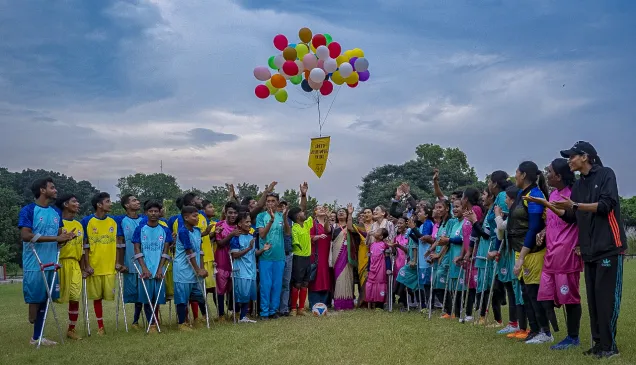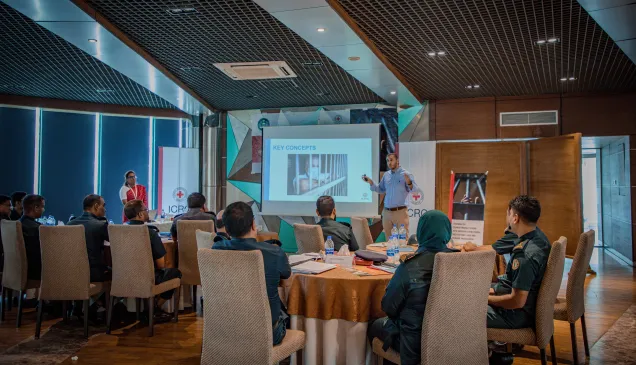Bangladesh: Playing cricket with the stars and defeating physical challenges
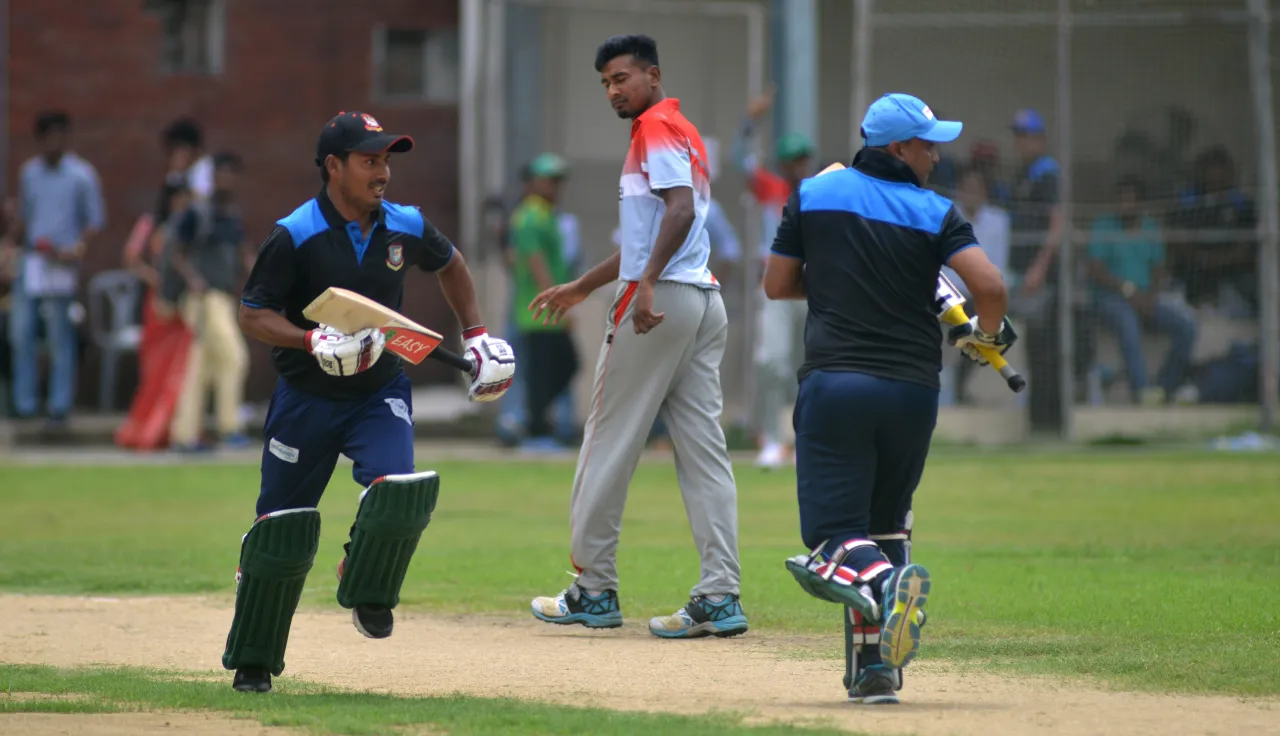
Playing against cricketers with physical disabilities for the first time, Bangladeshi star batsman Mohammad Ashraful said he was in awe of what he saw and experienced. "The players did an outstanding job of fielding and bowling. It did not occur to us at all that they have any physical challenges. Their sporting spirit was commendable," says Ashraful, who captained his side during a ten-over friendly match with the Physically Challenged Cricket team of the Bangladesh Cricket Board (BCB). The game was jointly organized by the International Committee of the Red Cross (ICRC) and the BCB in Dhaka.
The cricketing icon was equally impressed with Nasim, who, though being disabled, is a master spinner and wowed everyone with his bowling technique.
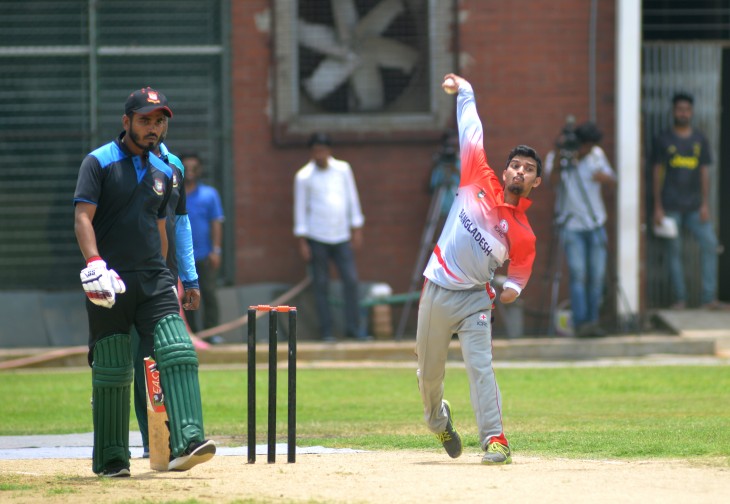
Nasim bowling to his cricket heroes in a friendly match with national players held recently in Dhaka. CC BY-NC-ND / ICRC / S Lasker
Now 23, Nasim was born with a physical disability and had to move into an orphanage when he turned 13. Bearing the stigma of being differently abled, he did not have much to look forward to in life. That's when cricket bowled him over.
The last few weeks have been almost dreamlike for Nasim. He keeps smiling and revisiting the match in which he not only played against Mohammad Ashraful, but also Abdur Razzak, one of the best bowlers from Bangladesh.
I can't describe how happy I was sharing the pitch with my heroes. They are the superstars of cricket in my country and I got to bowl to them! It really is like a dream.
Playing the game as part of the ICRC's social inclusion activities, he gained confidence and grew into a person with strong convictions. "I am able to live with respect because of the ICRC's initiatives," said Nasim, who is in the final year of college. Independent and comfortable with managing everyday tasks, he helps other children at the orphanage with their studies.
Nasim's teammate Shariful has also lived through a nightmare. In 2010, when he was in eighth grade he lost his right leg after being hit by a bus. One year later, he was fitted with prosthesis at the ICRC-supported physical rehabilitation centre in Chattogram and was able to walk again. As he healed, Shariful's love for cricket drew him back to the field but nobody wanted him on their team because of his disability. Instead of withdrawing, he decided to form his own team. So, he saved up some money to buy a cricket bat and ball and then gathered younger kids to play with him.
His commitment to the game paid off much more than he imagined, and he was picked for the BCB Physically Challenged Cricket team. "I have had the opportunity to travel and play internationally in Dubai and England. Family members, friends and neighbours have been appreciating my game. Now people know me by name and are eager to host me," he said with joy.
Watching the young men play, one may wonder how they have the stamina for the rigorous physical activity. They share that the ICRC's social inclusion activities have helped to build the physical strength they need for the training camps and tournaments.
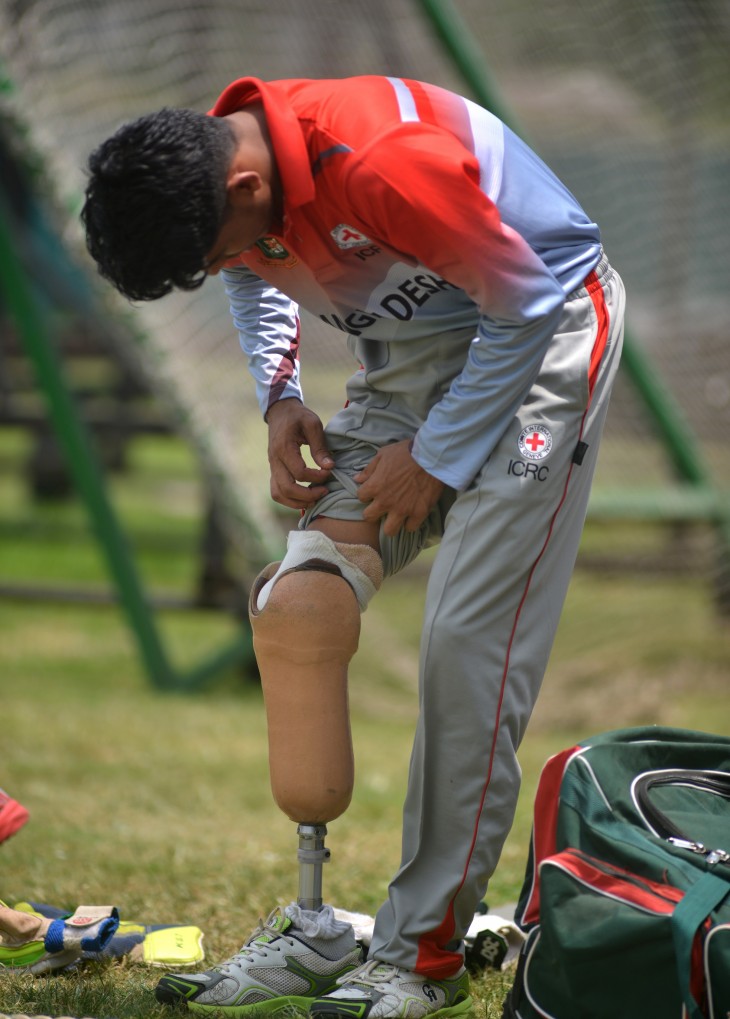
Shariful fixes his prosthetics in between the match. CC BY-NC-ND / ICRC / S Lasker
Though Nasim's team lost the match to their heroes, they were pumped up with confidence to take on any challenge at the upcoming Physical Disability World Series in England for which they have been training with the support of the ICRC and BCB.
A manager of the ICRC Physical Rehabilitation Programme, Ajaya Sen, pointed out that sports is not only a great tool for building the strength and confidence of those who are disabled but also in breaking through social prejudices.
We strongly believe that sports can help reduce the stigma and discrimination associated with disabilities. It can transform the attitude of communities by raising awareness about people with disabilities. Along with close partners like BCB and Centre for the Rehabilitation of the Paralyzed (CRP), we continue to promote social inclusion initiatives through sports, including cricket and wheelchair basketball.
In 2018, over 190 athletes with physical disabilities participated in cricket and wheelchair basketball tournaments with the ICRC's support.

